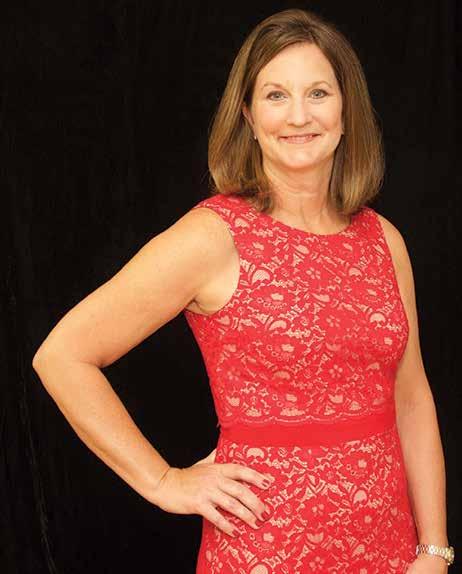
2 minute read
Research
health would be closely followed for the rest of her life by her local care team and researchers.
“I put a lot of thought into participating – it felt like deciding to get married or to have a child,” recalls Liz, who owns Carmody Irish Pub and Brewing in Duluth with her husband, Ed.
part of the greater good” and help other women.
“You could either be Liz, a person who survives, or you could be Liz, who helps somebody else learn something,” she says. “I was ready to do anything to make it easier for someone else who would be going through this after me. It was something to focus on in a positive way to get me through my cancer treatments.”
Liz met with Diane Nelson, a clinical research nurse at the Essentia Health Cancer Center who works with women diagnosed with breast cancer. Diane answered Liz’s questions and encouraged her to make the decision that was right for her. Liz, who is known for her positive attitude, decided she wanted “to be
“Liz is so vivacious,” says Diane, who helped Liz during her treatments and continues to be part of her healthcare team. “She brings out the best in everybody.”
Diane still has a photo of Liz wearing a bright pink wig on her last day of chemotherapy. “Liz got tired and had side effects but she always made it the best that she could,” Diane recalls.
The first clinical trial Liz joined added a new chemotherapy drug for some par- ticipants while others received a placebo. When a sister-in-law was diagnosed with breast cancer just six months later, Liz told her about the study and she also participated. It wasn’t until later that Liz learned she had received the drug.

Liz says she was eager to help in two later clinical trials that studied ways to treat side effects from chemotherapy. “Once I realized how important clinical trials are, I said I’m in, I’m all in,” Liz recalls. “If there’s another study 10 years from now, I’m in. The knowledge is so powerful.”
Clinical trials are designed to answer questions about ways to prevent, diagnose, and treat cancer. They also can find ways to better manage symptoms that cancer or its treatments can cause. Offering clinical trials to patients is an important part of delivering the highest quality care, and patients who participate in clinical trials can help define a brighter future for all cancer patients, says Dr. Bret Friday, an Essentia Health hematologist/oncologist who cares for Liz and also conducts research himself.
The Essentia Health Cancer Center has participated in clinical trials since 1977and offers more than 65 trials for children and adults. The center is one of just 34 community sites chosen to participate in the National Cancer Institute’s Community Oncology Research Program (NCORP).
Liz says she thinks about the women who joined the clinical trials that led to the treatments that allowed her to once again be cancer-free. And she thinks about the women who will come after her.
“I see myself as a link in the chain,” Liz explains. “We’re women and we’re gonna fix this. That’s what women do. If we all keep doing this, we’re going to chip away until we find something – a better treatment or a cure.” D
by Sheryl Jensen
Itall started as an innocent little 5K run with the family on Thanksgiving Day in 2013. It turned into near fatal cardiac arrest on a street in downtown Naples, Florida, for Kristin Ryan, formerly









